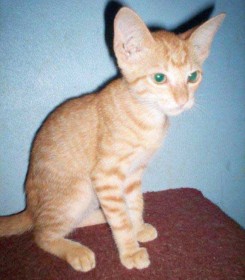Prostate hypertrophy (Enlarged prostate gland)
Male dogs have prostate glands too, and like humans, older male dogs do exhibit signs of an enlarged prostate gland. This organ can become so big that it extends on to the anal canal and blocks off the rectum from the outside. The swollen prostate is painful and any attempt to defecate puts a pressure on the hurting gland. The animal is in no mood to evacuate its stool and a constipation condition develops.
The treatment, of course, will centre around the reduction of the size of the prostate gland. Your vet will advise you specifically on this matter. The treatment might entail the administering of oestrogen (female hormone). Basically, the treatment is the same as with humans, and the dosage rate of the various medications would be the same – corresponding to the weight of the dog.

If the animal is constipated and debilitated, a nourishing, slightly laxative diet is indicated; daily enemas may be required. If the urine is retained, the bladder must be emptied at least three times daily, preferably by manual compression through the abdominal wall.
Perineal hernias (PH)
A perineal hernia is a protrusion which can be seen below and to one side of the anus. It is seen mostly in uncastrated male dogs older than six years of age. It can be on one side or on both sides of the anus. Certain breeds seem predisposed to this problem, but I have encountered this type of hernia often in elderly common-breed dogs as well. I think that, in addition to a genetic predisposition and the age of the animal, a hormonal imbalance is definitely involved in this ailment; and prostate problems (described above) almost surely could play a role in the perineal hernia.
Constipation and an accumulation of faeces in the rectum follow. You can always see the swelling (bulge), especially when the dog strains to defecate. The rectum deviates in most cases into the hernia sac. You can actually feel the soft, fluctuant mass, which moves inwards as you press it with your fingers. It is this deviation of the rectum into the sac and the pain that cause the constipation. Once the perineal hernia develops, you will see it immediately. Since it is a serious matter do not put off seeing your vet – hoping that the swelling at the side(s) of the anus will reduce in size over time. It won’t.
Other common signs, associated with a PH, include flatulence, pain on defecation and irregular bowel movements. Straining to pass stool is also a constant feature of PH.
The treatment, in my opinion, really is only surgery. In addition to surgical correction, your vet will advise you to castrate the dog. Follow that advice.
Usually, people bring their dogs with PH so late to the vet (since it is not an immediately life-threatening ailment – unless the bladder is strangulated within the sac), that surgery helps only for a short while and then there is a relapse to the original situation.
Worse, not lastly because of the area (near the anus) in which the surgery is done, there can be post-operative complications like infections, fistulas, nerve damage and even a prolapse of the rectum. This is one ailment that you will want to discuss with your vet in detail, as to how you intend to proceed – given the doubtful prognosis.
The supportive treatment will entail offering the dog a soft, low residue, bland diet. Gentle laxatives may be introduced as stool softeners.
We’ll continue with some other miscellaneous causes of constipation next week.
Please implement disease preventative measures (vaccinations, routine dewormings, monthly anti-heartworm medication, etc) and adopt-a-pet from the GSPCA’s Animal Clinic and Shelter at Robb Street and Orange Walk, if you have the wherewithal to care well for the animals. Do not stray your unwanted pets, take them to the GSPCA’s Clinic and Shelter instead. If you do not wish your pet to have puppies or kittens, you may exploit the GSPCA’s free spay and neutering programme. If you see anyone being cruel to an animal, or if you need any technical information, please get in touch with the Clinic and Shelter by calling 226-4237.








